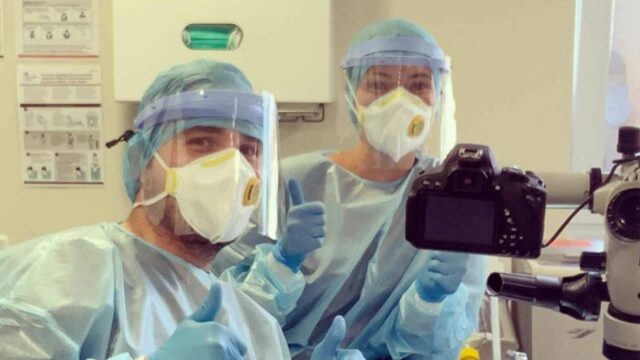What is a dental nurse?
A dental nurse is a healthcare professional who works in a dentist’s office. They help with patient care and assist the dentist during procedures.
Dental nurses can be involved in many aspects of the treatment. This can include taking X-rays to preparing patients for treatment to providing advice about home care. Many work closely with dentists and specialists such as orthodontists or periodontists to give patients regular dental check-ups and cleanings, keep their mouths healthy, diagnose problems before they become too serious—and even provide treatment for people who have oral cancer!
Entry-level opportunities for dental nurses.
As a dental nurse, you may work in a general dental practice or in a specialist clinic. There you may treat a variety of patients across all ages from babies through to elderly people who require complex treatment plans. The type of treatment they need depends on their individual circumstances and needs. You may also expand your patient care and communication skills by working in the reception, welcoming patients, organising new appointments and managing payments.
Career advancement opportunities, such as becoming a practice manager.
Once you've acquired the necessary skills, you can progress further in your career, by becoming a practice manager or one of several other dental roles. These include:
- Dental hygienist - Hygienists deal with preventative oral hygiene to help patients maintain good oral health, including cleaning teeth and removing tartar build-up where it occurs.
- Dental therapists – in addition to the dental hygienist role, they can also provide filling to patients and crown and root canal treatment to children.
- Additional skills such as becoming qualified in radiography, sedation, orthodontics or implants to name a few. These learnings give you knowledge to undertake other responsibilities in the practice that allow for more direct contact with the patients.
- Dentist - If you aspire to become a dentist, then getting an undergraduate degree could help you make this dream come true. Following this, you can specialise in an area of interest. For example, surgeons work alongside general dentists to remove tumours from people's gums or jawbones, extract wisdom teeth (the last molars in our mouths) if they cause pain when chewing food because they're pointed outward instead of inward like regular ones do—you get the idea! Another example is orthodontics – this involves straightening crooked teeth so they fit together properly when talking through them normally instead of showing gaps between each tooth like when someone grinds their teeth too much while sleeping at night.
There are a plethora of opportunities after you become a dental nurse. All you need is the desire to continue to learn.
Qualifications and education needed to become a dental nurse.
You will need to enrol on a Dental Nursing course. Completion of this will enable your recognition as a fully qualified dental nurse. You can do it through an apprenticeship programme or a diploma option. Here at Cavity, we have our own Dental Nursing Diploma course. This is accredited by City&Guilds and run by our experienced staff, amongst whom have also got a nursing background. For more information check out our website and blogs.
The role of the dental nurse in the workplace.
As a dental nurse, you will play a critical role in the workplace. You'll work to ensure that patients enjoy safe, comfortable, and effective visits. The responsibilities of this position include:
- Taking patient histories
- Performing dental hygiene procedures
- Preparing patients for dental procedures
- Providing support to the dentist and other team members
Salary information and benefits.
The average hourly rate for a dental nurse average at around £21,730 per year (average £11.63/hour). You may find that some employers offer more competitive salaries than others. This could be based on factors such as location and experience level.
In addition to financial stability, there are several other benefits associated with being a dental nurse that make this career choice appealing:
- Opportunity for flexible work
- Diversity in work opportunities (i.e working general dental practitioners, therapists for therapists)
- Dental nursing is a demanding profession. This means that you not only have plenty of work around but also option to choose from
- Working on a chosen specialty which allows you to explore an area of dentistry and help patients in an environment that you enjoy working in.
Learning more about the exciting world of dental nursing is a great way to get started on your career!
If you're asking yourself “what is dental nursing?”, and you've been wondering how to get started in this exciting field, then you're in the right place!
Dental nursing is a rewarding career that gives you a chance to work with people and help them feel better about themselves. If that sounds like something that would make your days more enjoyable, then read on.
There are many different types of opportunities available for those who enjoy working in dentistry. There are different types of jobs for different skill levels and situations. For example: some people might want to be receptionists at their dentist's office; others might want to become personal assistants for dentists or hygienists; still others may wish to pursue more hands-on roles such as a hygienist.
We hope you enjoyed this article and are now ready to take the next step in your career! If you have any questions about what it takes to become a dental nurse, feel free to contact us.
